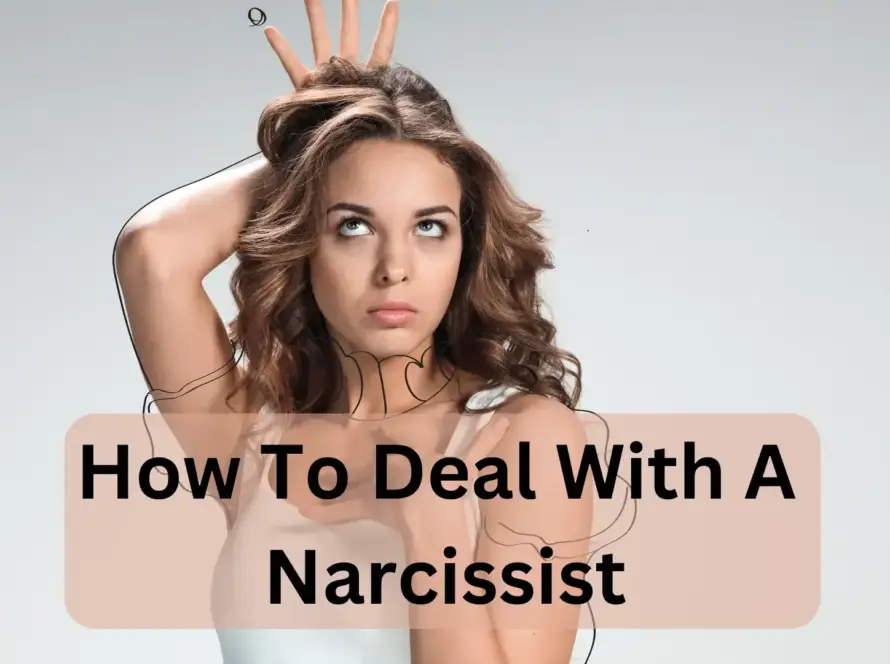
Emotional cheating! Yep, we’re going there.
It’s that sneaky cousin of physical cheating, the one we don’t see coming.
Most people talk about cheating like it’s some soap-opera-worthy affair.
But what about the stuff that starts as “just friends” and slips into “uh-oh, this is more than friends”?
Let’s break it down.
Emotional cheating is that connection your partner builds with someone else that’s deep, personal, and way too close for comfort.
No kissing, no “Netflix and Chill”, just a little too much texting and a lot too much emotional closeness.
How Emotional Cheating Differs from the Good Ol’ Physical Kind (The No-Kiss Rule)
Here’s the thing: emotional cheating is like trying to play detective without any evidence.
With physical cheating, it’s pretty cut-and-dry.
There are telltale signs, lipstick stains, a suspicious “meeting,” or even receipts from that overpriced Italian restaurant they definitely didn’t go to with you.
But emotional cheating?
It’s all invisible.
When someone is emotionally cheating, there’s usually no sneaking out at odd hours or long “work trips.”
It’s often right in front of you.
They’re laughing at their phone, smiling like a goof, and texting away like they’ve discovered a new BFF.
But instead of a friend, it’s a “friend” they’re telling their deepest secrets and stresses to.
Emotional cheating is tricky because it looks so innocent on the surface.
There’s no physical touch, but there’s a whole lot of emotional investment going on.
Think about it like this: physical cheating is like throwing a rock at your relationship.
Emotional cheating is more like a slow leak.
At first, it doesn’t seem like a big deal.
But over time, that tiny little leak is going to create some serious water damage. And by the time you notice, it’s already seeped in too deep.
Another big difference?
With emotional cheating, they’re getting their needs met elsewhere without you even realizing.
That whole “just friends” thing?
It usually comes with daily check-ins, constant texting, and maybe even coffee dates where they “catch up” on their latest life drama.
When your partner’s leaning on someone else emotionally, they’re not coming to you for comfort and support.
That’s emotional intimacy that’s supposed to be in your relationship, and it’s quietly slipping away.
Here’s where it gets really murky: emotional cheating often feels safer to the person doing it.
They’re not breaking any “rules,” at least not the big, obvious ones.
They’ll think, “I’m not cheating: I’m not even touching this person!”
But here’s the reality: sharing secrets, spending hours confiding in each other, and giving all that energy to someone else is just as much of a betrayal.
The hardest part?
Since there’s no “no-kiss” rule being broken, the cheater often doesn’t think they’re doing anything wrong.
They’ll defend it as just friendship, which makes it almost impossible to call out without feeling like you’re overreacting.
But if that friendship is creating intimacy and bonding that belongs in your relationship, then it’s emotional cheating, plain and simple.
Surprising Signs of an Emotional Affair
Emotional affairs can be sneaky.
They don’t come with big red flags like hidden hotel bills or “late nights at the office.”
Instead, the signs are subtle, everyday behaviors that feel harmless, until they don’t.
Here are some surprising signs of emotional cheating that you might not think about until it’s already happening:
They’re Always a Little Too Excited About Their “Friend”
You know that glow someone gets when they’re crushing on someone?
If your partner lights up at the mere mention of this “friend”, as in, they’re suddenly way too interested in their day, their new project, their cat’s latest trick, it might be more than friendship.
They Start “Improving Themselves” in Odd Ways
Maybe they suddenly have a new interest in working out, reading new books, or watching shows they previously thought were boring.
Often, this is because they want to impress the person they’re emotionally attached to.
If they start making changes based on things this “friend” likes, that’s a sign.
You’re No Longer the Go-To Person for Good or Bad News
A partner in an emotional affair starts seeing this other person as their confidant.
They share exciting or difficult news with the “friend” before telling you.
If you’re learning important things about your partner last, that’s a big warning sign.
They Get Really Defensive About Their Phone
Not all emotional cheaters are glued to their phones, but if they suddenly start guarding it like it’s Fort Knox?
Or, if they turn the screen away from you when a message pops up, it could be because they’re hiding those “innocent” little messages.
If you ask about it and they act like you’re invading their privacy, that’s emotional cheating’s siren blaring.
You’re Getting Compared to This “Friend”
Ever heard, “Why don’t you try that new hobby that [Friend’s Name] loves?”
Or “You and [Friend’s Name] could totally get along. You have so much in common!”
They might even say things like, “Oh, [Friend’s Name] gets my jokes,”
Or “She/he always has great advice.”
Subtle, but it’s an indication that they admire this person in ways that go beyond just friendly appreciation.
They Get More Secretive About Their Schedule
They might not be lying about where they’re going, but if they’re suddenly vague about where they’ve been or how they spent their time, something’s up.
They may be meeting this “friend” for coffee or a “quick catch-up,” but they don’t want to admit how much time they’re really spending with them.
You Notice Changes in How They Treat You
Emotional cheating often comes with shifts in behavior at home.
Maybe they’re less affectionate, a little colder, or more distracted when they’re with you.
They might get irritated by things that didn’t bother them before.
Why?
Because they’re now comparing you (even subconsciously) to their emotional affair partner.
It can create a distance between you two, even if they don’t realize they’re doing it.
Increased Focus on Their Appearance Around This “Friend”
Notice that they suddenly dress up a little more for that “work friend” lunch or wear their favorite perfume when they’re “just meeting a friend”?
These small changes in appearance can be signs they’re trying to impress or make an impact.
It’s one thing to care about looking nice, but when it’s specific to this “friend,” it’s a sign they’re more invested than they admit.
They’re Quicker to Defend This Friend than You
If you bring up concerns about this friend, they jump to defend them like it’s the last crusade.
Maybe you casually say, “You seem really close with [Friend’s Name],” and suddenly, they’re acting like you’ve just accused them of a crime.
The intensity of their defense can often signal there’s more at stake than just a casual friendship.
They Seem Happier (and Not Because of You)
This is a tough one, but sometimes emotional affairs bring a certain glow to your partner.
They’re excited, energetic, and, weirdly, much happier than usual.
You might wonder what’s changed. After all, nothing’s been going on between you.
But they’re getting that high from a fresh emotional connection with someone else.
They’re Sharing Way More Details About Your Relationship
One of the biggest signs of an emotional affair is when they start talking about your relationship problems with this “friend.” It’s one thing to vent to close friends.
It’s another when they start sharing all the little (or big) issues you have as a couple.
This type of sharing builds an emotional bond, making it feel like they’re in their own private relationship bubble, and that’s dangerous territory.
Emotional affairs might seem innocent at first, but when you start noticing these subtle signs, trust your gut.
Emotional cheating hides in these small behaviors, but when you put them all together, they can spell trouble.

Why Emotional Cheating Hurts Just as Much (If Not More!)
Let’s face it: emotional cheating cuts deep, sometimes deeper than physical cheating.
Physical cheating is often seen as “the worst,” but emotional cheating has a unique sting.
It’s like a betrayal of the heart instead of just the body, which can feel a whole lot more personal.
When someone’s emotionally cheating, they’re giving a piece of themselves to someone else.
And not just any piece: the emotional piece!
That part of them that should be saved for the person they love most: you.
They’re investing their feelings, their thoughts, and their secrets with someone else.
Suddenly, all the little things you’d expect them to share with you: their worries, their dreams, their daily highs and lows, are going to someone else.
One of the worst parts?
You can feel it happening but can’t quite put your finger on it.
With physical cheating, the betrayal is tangible.
Emotional cheating, though, is like slowly watching someone drift away without having a clear reason why.
You feel it in the growing silence, the missed moments, the feeling that they’re a little bit “checked out” around you.
You’re suddenly competing with a “friend” for their attention, and it’s a contest you never signed up for.
There’s also this sense of exclusion that can be even more painful.
With physical cheating, there’s a single act of betrayal.
With emotional cheating, it’s ongoing.
You watch as your partner chooses to text or talk to this other person about things they don’t even share with you.
It’s like they’ve built a little world with someone else, and you’re locked out.
They’re bonding over secrets, laughs, and “you-had-to-be-there” moments, and it can leave you feeling totally isolated.
Another kicker?
Emotional cheating often involves things that are hard to compete with.
While physical cheating can be devastating, it’s usually easier to point to and say, “This is why it’s over.”
But emotional cheating builds on shared memories, mutual support, and even admiration. It’s not just about attraction but genuine connection, and that’s something you can’t just “fix” or dismiss.
What also stings about emotional cheating is the feeling that you weren’t enough.
When your partner turns to someone else emotionally, it often leaves you wondering if there’s something missing in you.
You might think, “Why didn’t they come to me with their problems?”
Or “What does this person offer that I don’t?”
It’s an insecurity bomb, planted right in the middle of your relationship.
And let’s talk about trust.
Physical cheating shatters trust, but with emotional cheating, it’s a slow erosion.
You start to question everything.
If they can connect so deeply with someone else, what’s stopping it from going further?
What if every time they say they’re “just friends” with someone, it means they’re secretly building an emotional relationship?
Emotional cheating can make you feel like you’re on edge constantly, wondering what’s happening just below the surface.
Lastly, there’s the issue of recovery.
With physical cheating, you often have a clear choice: forgive and move on, or walk away.
With emotional cheating, it’s not always that simple.
The betrayal lingers.
You might patch things up, but there’s a part of you that can’t help but wonder if they’re still connecting with that other person.
Or worse, if they’re forming new emotional connections somewhere else.
The “what if” hangs in the air, making it hard to fully trust again.
Emotional cheating is real, and it’s painful in a way that’s unique and deeply personal.
It leaves you questioning, doubting, and often feeling a hurt that’s hard to explain. That’s why it’s such a big deal, it’s not “just feelings.”
It’s emotional intimacy, and it belongs in your relationship, not somewhere else.
What to Do if You Suspect an Emotional Affair
If you’re getting that uneasy feeling in your gut, don’t ignore it.
Emotional cheating is subtle, and by the time the signs are obvious, the bond may already be strong.
Here’s how to approach it without jumping to conclusions or causing an explosive confrontation.
First, observe before reacting.
Take a step back and notice patterns.
Are they constantly texting or messaging this person?
Do they light up when a text comes through from them?
Are they suddenly a little more secretive about their phone?
These clues aren’t proof, but they can help you confirm if there’s a deeper connection there.
Once you feel confident that something’s up, choose the right time to talk.
Bringing it up in the middle of a stressful moment or when emotions are running high won’t get you anywhere.
Pick a calm, private moment where both of you are relaxed.
You want an environment where they’ll be open and receptive, not defensive or on edge.
When you do bring it up, use “I” statements to keep the conversation non-accusatory.
Instead of saying, “You’re getting too close to [Friend’s Name],” try something like, “I feel a little distant from you lately, and I’ve noticed you’re spending a lot of time with [Friend’s Name].”
Framing it this way puts the focus on your feelings rather than making them feel attacked, which can encourage a more honest conversation.
It’s also a good idea to ask open-ended questions rather than making direct accusations.
For example: “I’m curious about your friendship with [Friend’s Name]. What do you feel you get from them that’s unique?”
Or “How do you feel when you’re around them?”
This approach allows them to open up about the connection without feeling like they have to defend themselves immediately.
It can also help them reflect on the bond and recognize if it’s more than friendship.
Express your boundaries clearly and make sure you’re honest about what you’re comfortable with in the relationship.
If spending a lot of one-on-one time with a “friend” crosses a line for you, communicate that.
Say something like, “I feel uncomfortable when there’s a strong emotional connection with someone outside of us, and I’d appreciate it if we could talk about boundaries that work for both of us.”
Sometimes, though, you’ll need to gently call out behavior without feeling like you’re “policing” them.
Be direct but calm if you feel they’re brushing off your concerns with the “just friends” excuse.
You can say, “I understand you see it as a friendship, but the time and energy going into it make me feel left out.”
This makes it clear that it’s not just about the label but about the shift in attention and emotional investment.
If your partner is open to it, suggest relationship check-ins or counseling.
This can help you both reconnect and rebuild intimacy.
Counseling isn’t just for couples on the brink of breaking up: it can be a powerful tool to strengthen a healthy relationship and bring you both back into alignment.
It also offers a safe space for each of you to express your needs and boundaries without the conversation turning into a blame game.
And if they’re not ready to consider counseling, there’s a more casual approach: suggest reconnecting as a couple through shared activities.
Find ways to invest in each other emotionally.
Plan regular date nights, try a new hobby together, or even just spend time without distractions, like phones or work.
Building emotional intimacy with each other can naturally create more distance between your partner and the friend they’ve become close to.
Finally, trust your instincts but give them the chance to make it right.
It’s easy to feel threatened by an emotional affair, but if they’re willing to work with you to restore trust, that’s a good sign.
Keep the door open for them to explain their side and understand what they’re getting from this outside connection that’s not being met in your relationship.
This conversation can help you both grow closer and ensure both of your needs are better understood.
Navigating emotional cheating is tricky, but an honest, patient approach can give you the clarity you need. If they’re willing to work through it, you’ll have the opportunity to rebuild a stronger, more resilient relationship together.
And if not?
You’ll know you gave it your best shot and have the clarity to decide what’s next for you.
Conclusion
In the end, emotional cheating is a challenge, but it doesn’t have to be the end of your relationship.
With open communication, honesty, and a shared commitment to reconnect, couples can overcome even the most difficult emotional hurdles.
The journey won’t always be easy, but it’s one that can bring you closer than ever if you both put in the work.
One of the best ways to keep communication strong and prevent emotional distance is by prioritizing regular, meaningful connection.
That’s where the Better Topics Card Game for Couples comes in!
This game is designed to help you and your partner dive deep into important conversations, laugh together, and bond in a way that feels natural and fun.
With its repeatable questions, you can play it over and over without ever feeling like it’s the same experience.
So why not give it a try?
Whether you’re healing from an emotional affair or just want to strengthen your bond, Better Topics offers the perfect opportunity to stay playful and engaged.
Rediscover each other, grow closer, and build a relationship that thrives: one card at a time.










